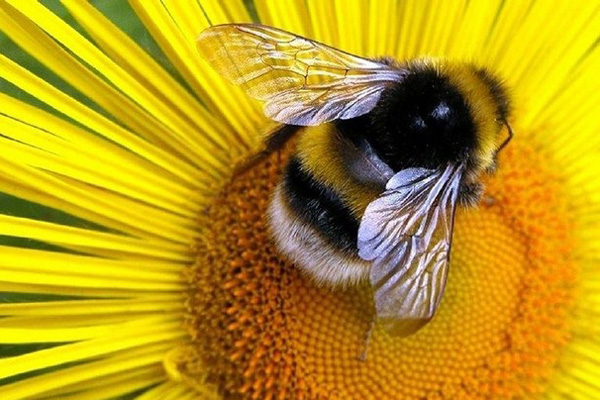-

Erin Donahue -

Christina Barkanic -

Brittany Trott -

Emily Wiley -

Jessica Reilley -

Chris Raines -

Will Nichols -

Emily Reddy -

Michele Marchetti -

Michele Frank -

James Gherardi -

Kit Henshaw -

Christina and Erin -

Kim Tait -

Erin McKinney -

Steve Spanelli -

Sam Komlenic -

Katherine Taylor Grofic -

James Eisenstein -

Jamie Oberdick -

Anna Lombardo -

LacCreta Holland -

Tony Ricci -

Local Food Journey -

Laura Young -

Kristin Camplese -

Harrison's Fresh + Local -

Danielle Matalonis -

Kristine A. -

Linda Weaver -

Naomi Elle Schwartz -

Dana Stuchul -

Cara McShane -

Brittany Smith -

Jessica Illuzzi - Frosty
-

Jessica Paholsky -

James Sechrengost -

Brad Yeckley -

Maya Althouse -

Jordan Reabold -

Kim Chase -

Maria Bryant - Alexandrea Scott
Why Organic? Part 4: The Biosphere
Posted by James Eisenstein on 04/09, 2012 at 07:10 PM

Bumblebees get up earlier, browse longer and in worse weather, and pollinate more effectively than honey bees, but not when pesticides kill them.
Parts 1 through 3 of the “Why Organic?” series explained that organically grown food is more nutritious—reason enough to eat (and produce) it—and contains far fewer pesticide residues, whose effects are not fully known. But if that isn’t enough to convince you to eat organic, perhaps contemplating the ecological damage caused by conventional agriculture will change your mind.
I’ve spent the past month reading about pollinators. Without pollination, much of the food we eat (with the exception of grains) would not exist. The only thing I previously knew about pollinators was that there were honey bees, bumblebees, wasps, yellow-jackets, and the dreaded white-faced hornet, and that their stings could result in a fun-filled visit the emergency room.
I learned through my research that there about 4,000 native pollinators in North America, and that honey bees came from Europe. Our pollinators include many varieties of bumblebees and solitary bees like carpenter bees, mason bees, digger bees, and sweat bees. By the way, most don’t sting. Most nest in the ground, but others live in wood or stems. And, as you probably know, they are in decline—sometimes alarmingly so.
I display a bumper sticker from the American Farmland Trust that reads: “No Farms: No Food.” I’m looking for another that says: “No Pollinators: Very Little Food.”
The problem with conventional farming practices is that they spray organophosphate pesticides, which kill pollinators on contact. Those they don’t kill are injured.
Unharmed pollinators (maybe those that hung out at the nest during spray time) bring back contaminated pollen and nectar to the nest. The effects are devastating, resembling the harm done by tuna fishing practices on dolphins.
Osmia orchard bees aren’t as photogenic or appealing to humans as dolphins, but if you like apples and other fruits, they and other native pollinators are essential. If I wanted to be confrontational, I’d say that consumers of conventional produce are accessories to the killing of pollinators. Good thing I’m not like that!
Pollinators are only part of the story. As I mentioned in Part 1, pesticides, herbicides, and fungicides wreak havoc on the organisms found in healthy soils. Chemical fertilizers contain salts that kill earthworms, a vital inhabitant of good soil. Soil fungi bring trace nutrients to the root zone of plants, and don’t especially thrive after a good drenching with fungicides. The bacteria, nematodes, beetles, arthropods, and countless other organisms found in good soil need organic matter to thrive. Conventional agriculture typically adds little, if any, organic matter, and results in dead soils.
Other environmental harm flows from conventional agriculture—less biodiversity in plants and animals (think birds), less carbon sequestration, more soil erosion. Organic practices result in rich, living soils and help native pollinators thrive. When you eat organic, you help the environment. When you don’t, sorry folks, but you are contributing to its deterioration.
![]() Author: James Eisenstein
Author: James Eisenstein
Bio: Unpaid Field Hand at Jade Family Farm | Former Penn State Professor
- Our Local Food Journey comes to an end
- Winter isn’t a quiet time at the farm
- Get the taste of garden season right now by growing herbs indoors
- All you need to know about PASA’s Farming for the Future conference









NO COMMENTS